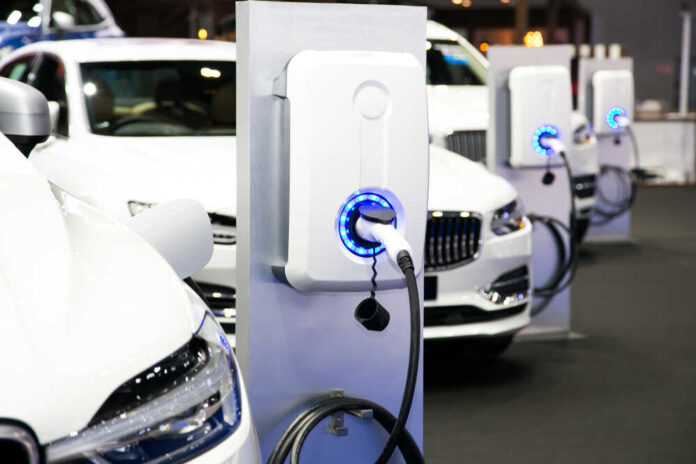
Hundreds of protesters gathered in northern Michigan to voice their concerns about a Chinese-owned electric vehicle (EV) battery plant being constructed in the area. Many cite potential national security risks and argue that the facility could lead to further Chinese influence in the United States.
The $2.4 billion project is headed by Gotion, a California-based company with its parent company, Gotion High-tech, located in China. The plant is set to be built in Mecosta County, approximately 100 miles from Camp Grayling, where the Michigan National Guard is training the Taiwanese military.
Well, here's what you're current administration is doing to the state of Michigan siding with the Chinese for EV batteries Hundreds protest Chinese-owned electric vehicle battery plant in Michigan https://t.co/ZBk6W4q1UF via @JustTheNews
— DOROTHY LEY (@DOROTHYLEY2) April 24, 2023
Corporate documents from Gotion reveal that the company intends to establish a party organization and conduct party activities following the Constitution of the Communist Party of China. Michigan Republican chair Kristina Karamo expressed her distrust of the company at the protest, saying, “That makes no sense whatsoever.”
Despite protesters’ concerns, a Michigan Senate committee has approved $175 million in state funding for the battery plant. Proponents of the project claim that it will bring thousands of jobs to the state, boosting the local economy. The facility is projected to create 2,350 jobs with an average wage of $29.42 per hour. Additionally, the plant will benefit from a 30-year Renaissance Zone approved by the state last year, saving Gotion an estimated $540 million.
However, Rep. John Moolenaar (R-MI) remains critical of the project, highlighting the Chinese President’s influence on the military-civil fusion, which implies that business ventures in China are linked to military implications. “So, it really puts all these partnerships into question,” he said.
The issue has divided lawmakers, as the funding approval saw a narrow vote, with several Democratic senators siding with Republicans due to concerns about Gotion’s foreign ties and the potential environmental impact of the facility. Before the committee’s vote, local community members voiced concerns about the environmental effects of the plant, with one organic farmer worrying that spillage from the facility could destroy his crops.
In response to the backlash, Chuck Thelen, Gotion’s vice president for North American operations, dismissed the idea of a “communist plot” to spread communism via the Big Rapids facility. Thelen also mentioned that the company underwent a voluntary review by the Department of Treasury’s Committee on Foreign Investment in the United States (CFIUS) to address concerns. According to Thelen, CFIUS determined that the proposed transaction did not require further review.
As tension mounts over the Gotion plant, the debate highlights the importance of balancing economic growth and job creation with potential security and environmental risks, especially as the U.S. grapples with a changing global landscape and the geopolitical threat of Chinese ambitions.


















